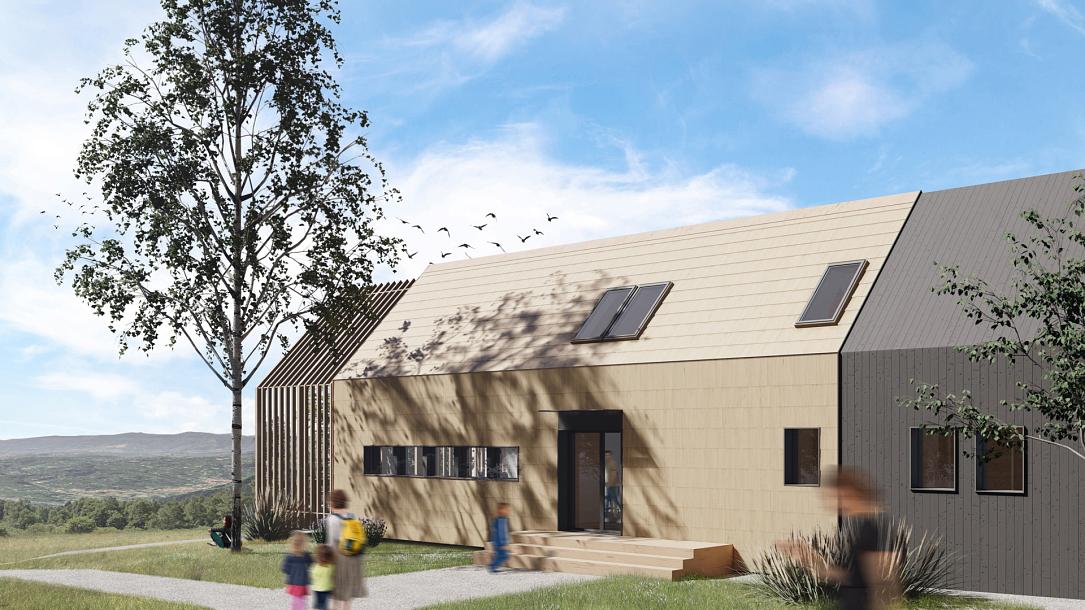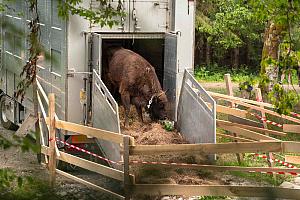WWF starts work on Romania’s first rural co-working campus in the Carpathian Mountains

WWF, together with the local community from the small village of Armenis and innovators in sustainable architecture, started work on WeWilder - the first rural hub in Romania, which will comprise co-working and living spaces.
The rural campus in Armenis, in the Southwestern Carpathian Mountains, aims to be a meeting place for freelancers, company teams, artists, entrepreneurs, and locals.
The area chosen for this project also gives visitors the chance to discover Romania’s wildlife: Armenis is the place where bison have been reintroduced in the Tarcu Mountains, through the WWF Romania initiative in collaboration with Rewilding Europe. More than 60 bison are currently roaming free in the Southern Carpathians.
“Our vision for WeWilder is to create an entrepreneurial innovation center for nature. As a freelancer, you can work from here, get your energy levels back up, eat well, and in turn, contribute to the birth of ideas and projects with a long-term vision. We’re proposing companies to offer their teams experiences in a wild area where WWF conducts conservation projects. These places can be the best source of inspiration for sustainability and business innovation,” said Orieta Hulea, director WWF Romania.
This year, the WeWilder campus will consist of three wooden houses called Chilii and a central space called Zâna (the Fairy), which houses a co-working area, a community kitchen, and a library. The wooden houses have been designed to include a small cooking space and a workspace so that one or two people can work without coming into contact with other people.
The space follows the philosophy of invisible architecture, which means that the buildings will be integrated into the natural landscape both in appearance and through the construction materials. Plus, the glass facade will give visitors amazing views of the panorama of the Tarcu Mountains and the surrounding hills.
WeWilder is located in a garden surrounded by trees, which will be transformed by landscape architect Tiberiu Chereches. In addition to planting maple, ash, or birch miniature forests next to each house, there will be a mixed forest near the main building, Zâna. There will also be a vegetable garden and a permaculture area, as well as a place dedicated to learning traditional mowing, which is essential for grassland biodiversity, WWF said.
The WeWilder campus under construction is completed by a network of traditional stone houses, located in the village or in the middle of nature and renovated with the villagers, which are already welcoming guests. There is also the MuMA Hut - a “tiny house” built in a local orchard, which was nominated this year for Beta - the architecture biennial in Timisoara. In addition, several locals are already offering local dishes to those staying here or as culinary experiences in nature.
WeWilder is a prototype of WWF Panda Labs, developed in response to the need for the rural community to grow substantially and sustainably. With the USD 100,000 funding from the global company Flex, WeWilder aims to be an example in terms of green architecture and a model for implementing a green, participatory micro-economy, echoed throughout the region, WWF said.
Next year, once the first stage is completed, four other houses will be added to the campus. So far, in addition to Flex, several co-team partners have contributed with expertise or materials to complete the total investment, which amounts to over EUR 200,000.
Further details about the project are available here.
irina.marica@romania-insider.com
(Photo source: WWF Romania)













